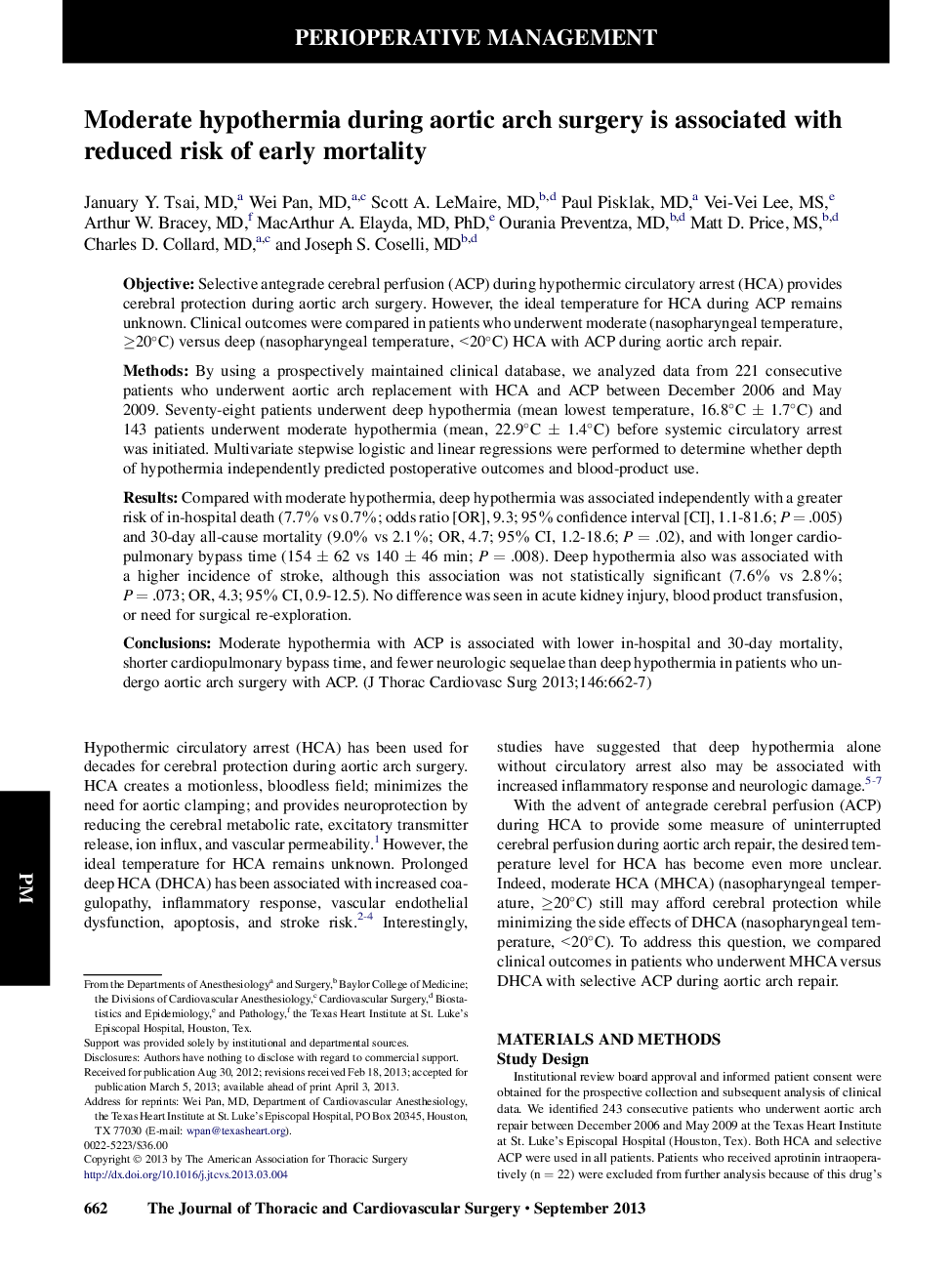| Article ID | Journal | Published Year | Pages | File Type |
|---|---|---|---|---|
| 5990141 | The Journal of Thoracic and Cardiovascular Surgery | 2013 | 6 Pages |
ObjectiveSelective antegrade cerebral perfusion (ACP) during hypothermic circulatory arrest (HCA) provides cerebral protection during aortic arch surgery. However, the ideal temperature for HCA during ACP remains unknown. Clinical outcomes were compared in patients who underwent moderate (nasopharyngeal temperature, â¥20°C) versus deep (nasopharyngeal temperature, <20°C) HCA with ACP during aortic arch repair.MethodsBy using a prospectively maintained clinical database, we analyzed data from 221 consecutive patients who underwent aortic arch replacement with HCA and ACP between December 2006 and May 2009. Seventy-eight patients underwent deep hypothermia (mean lowest temperature, 16.8°C ± 1.7°C) and 143 patients underwent moderate hypothermia (mean, 22.9°C ± 1.4°C) before systemic circulatory arrest was initiated. Multivariate stepwise logistic and linear regressions were performed to determine whether depth of hypothermia independently predicted postoperative outcomes and blood-product use.ResultsCompared with moderate hypothermia, deep hypothermia was associated independently with a greater risk of in-hospital death (7.7% vs 0.7%; odds ratio [OR], 9.3; 95% confidence interval [CI], 1.1-81.6; P = .005) and 30-day all-cause mortality (9.0% vs 2.1%; OR, 4.7; 95% CI, 1.2-18.6; P = .02), and with longer cardiopulmonary bypass time (154 ± 62 vs 140 ± 46 min; P = .008). Deep hypothermia also was associated with a higher incidence of stroke, although this association was not statistically significant (7.6% vs 2.8%; P = .073; OR, 4.3; 95% CI, 0.9-12.5). No difference was seen in acute kidney injury, blood product transfusion, or need for surgical re-exploration.ConclusionsModerate hypothermia with ACP is associated with lower in-hospital and 30-day mortality, shorter cardiopulmonary bypass time, and fewer neurologic sequelae than deep hypothermia in patients who undergo aortic arch surgery with ACP.
